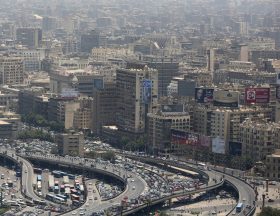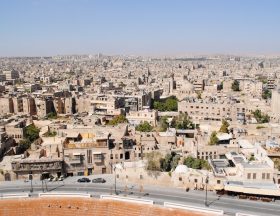The economic consequences for Lebanon of the conflict in Gaza and Israel remain uncertain. In a scenario of widening conflict in Lebanon, the economic implications are difficult to predict because they depend on the level of commitment of the parties. Scenarios and analysis.
It is useful to analyze the precedent of the 2006 war, although the ex ante context of the country is very different; Lebanon is today in a very fragile economic situation, with already very degraded infrastructure. Direct losses during the 2006 war were estimated at $3.6 billion, including $1 billion for the tourism sector (the war took place during the summer). The level of infrastructure destruction was very high, with a negative impact on potential growth.
Almost all strategic infrastructure has been affected: roads, bridges, ports, airport, telephone networks, electricity distribution networks, water distribution and irrigation networks, factories and factories.
Even in a status quo scenario, the situation could deteriorate.
The Lebanese economy is highly dependent on the outside world for its current supplies. Imports are expected to amount to $15 billion for 2023, on a GDP of less than $20 billion. The conflict could slow down or disrupt trade flows, which mainly pass through the port of Beirut, and lead to shortages of food and/or fuel.
The monetary and financial situation is at this stage relatively stable.
The pound has only marginally depreciated on the parallel market. However, the exchange rate remains fragile and could deteriorate in the event of a negative confidence shock, causing increased demand for dollars. International transfers, the main materialization of diaspora solidarity with Lebanon, should continue. They represent around $7 billion/year, or more than 30% of GDP.
On the other hand, the international perception of risk could result in a reduction in tourist flows to Lebanon, which are generally observed at Christmas and in summer.
However, this is one of the country’s main sources of foreign currency ($5 billion in 2022, or almost 25% of GDP). Other balance of payments determinants should not be unduly affected. The perception of country risk for Lebanon is already very degraded, the country is in default of payments and the systemic crisis that the country is experiencing has discouraged external financing and private investments.
These same risks are perceptible in other Middle Eastern countries, particularly in economies dependent on tourism.
Jordan’s economic and social fragilities raise questions about its capacity to absorb a new exogenous shock. The economy is highly dependent on external financial flows (international aid, tourism, diaspora transfers, foreign investments) and imports (95% of basic products). However, the conflict could lead to an increase in the cost of living, a drop in tourism and a deterioration in country risk.
In Egypt, a decline in tourism – a major source of foreign exchange – could also materialize. The situation in Israel is particular, since a war economy is being established, which implies: an economic slowdown linked to the reduction in the active population (around 500,000 people, due to the conscription and blockade of Palestinian workers ) ; an increased deficit following the adoption of a war budget; an increase in country risk; a restructuring of logistical flows, in particular with regard to hydrocarbon imports (via the port of Eilat and no longer via the port of Ashkelon, located 6 km from Gaza and now closed).
In Iran, the consequences of the conflict do not seem likely to significantly affect the country’s economic model (except in the hypothesis of a regional extension of the conflict), given the disconnection of the Iranian economy from traditional financial circuits and of the massive reorientation of its trade towards Asia.
Source French Embassy in Lebanon











Réagissez à cet article